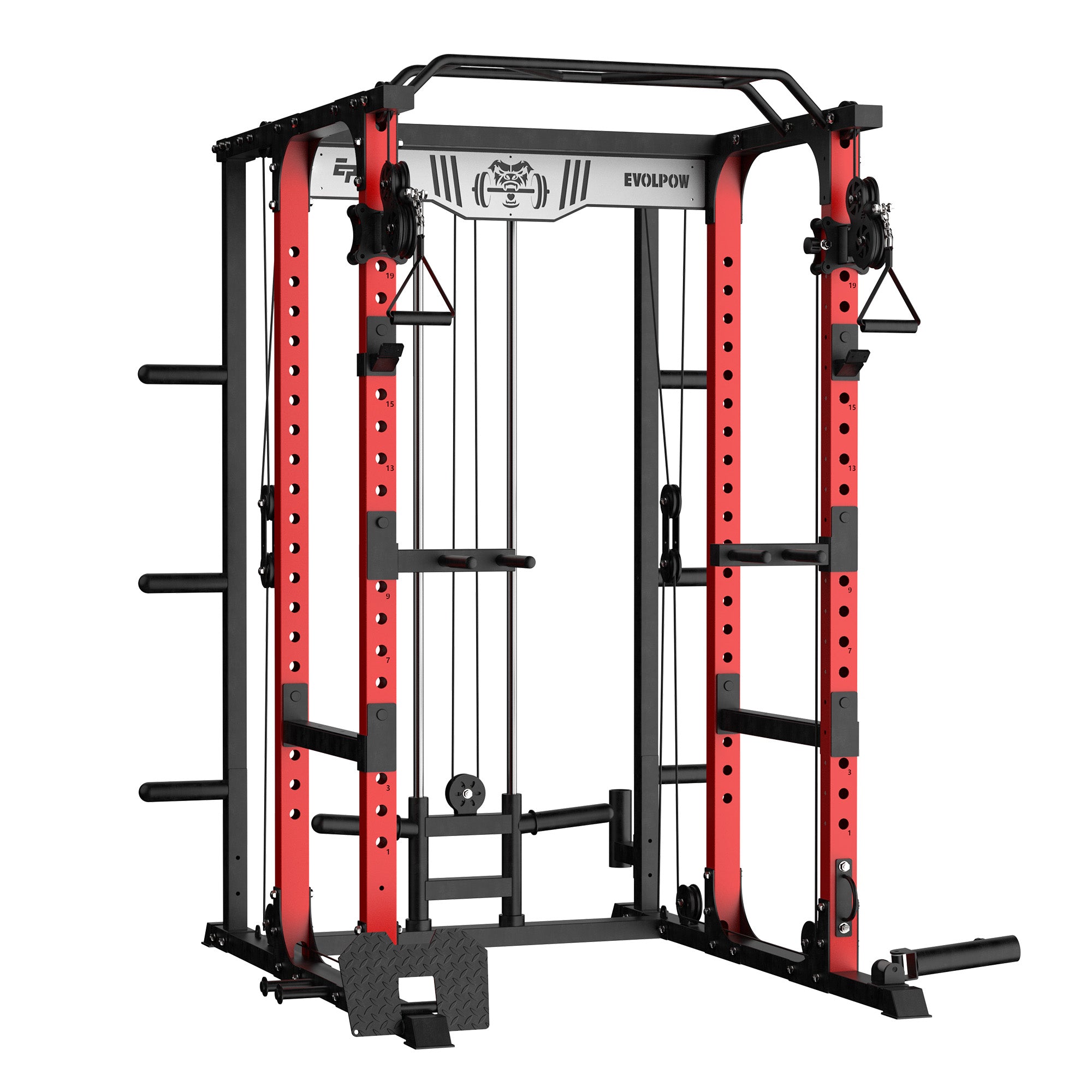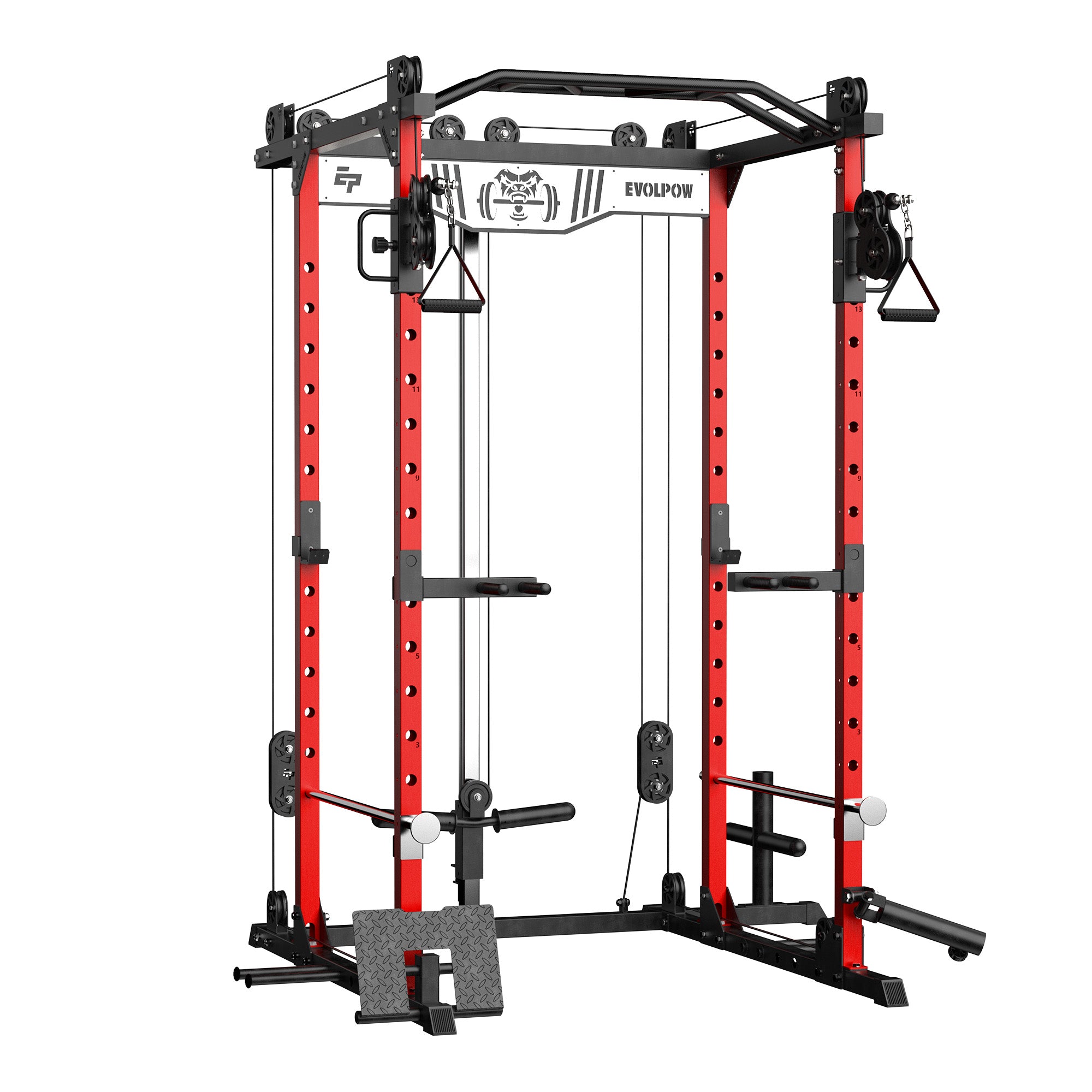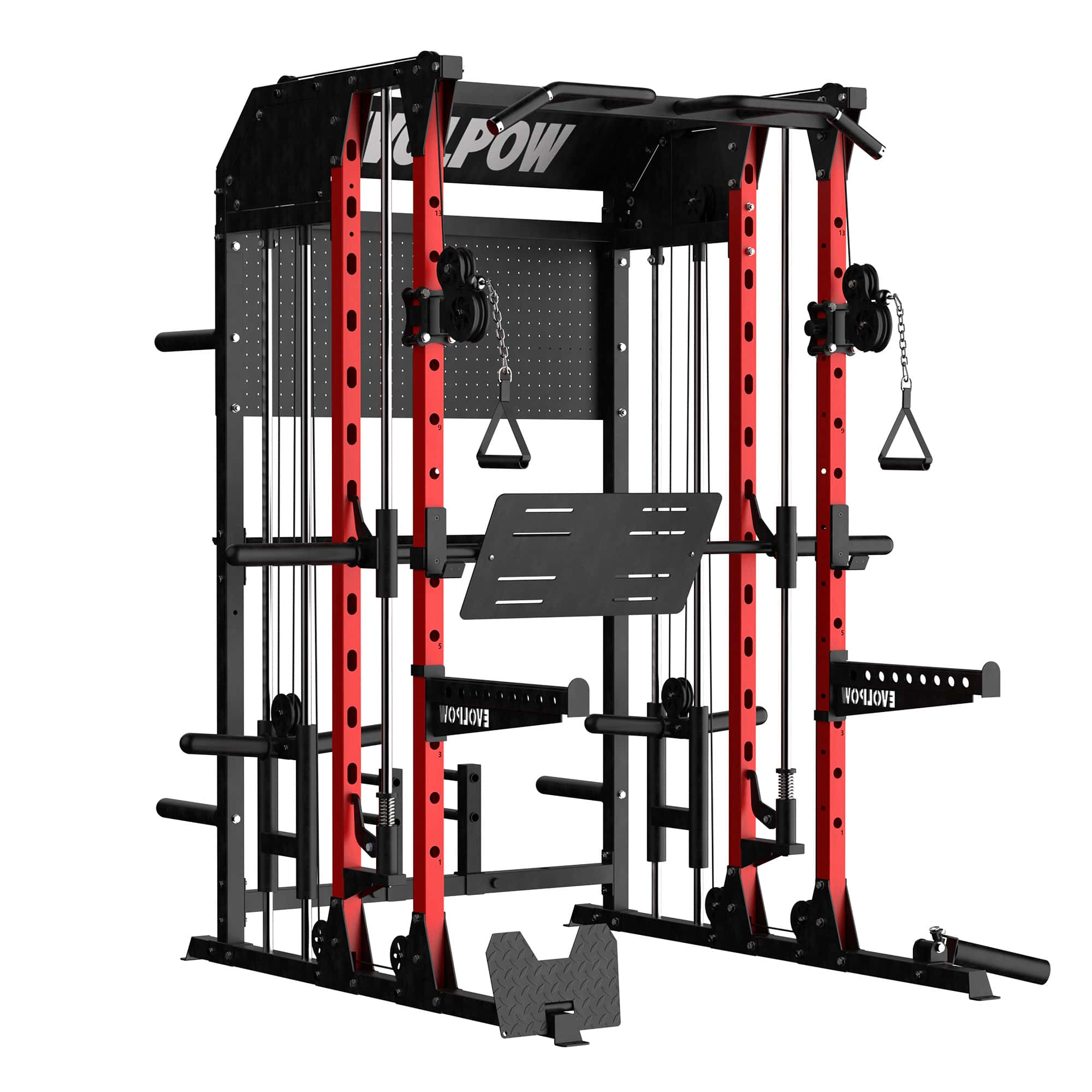In the pursuit of a sculpted physique and enhanced strength, muscle building remains a fundamental goal for many fitness enthusiasts. Whether you are a seasoned athlete or new to your fitness journey, developing an effective strength training routine is crucial. Understanding the science behind muscle training and learning how to tailor a fitness regimen to promote muscle growth can significantly accelerate your progress. This article aims to offer comprehensive insights and practical advice on maximizing muscle gain through scientifically-backed methods. Additionally, it will help you explore how to leverage affordable home gym equipment and the best garage gym equipment to optimize your workouts and achieve outstanding results.
CONTENTS
Understanding Muscle Growth
Key Principles for Muscle Building
Effective Workout Strategies
Conclusion
Understanding Muscle Growth

Muscle growth, scientifically known as hypertrophy, occurs when muscle fibers undergo stress and subsequent repair and adaptation. This process involves two primary mechanisms: mechanical tension and metabolic stress. Mechanical tension refers to the force exerted on muscles during resistance exercises, such as lifting weights. On the other hand, metabolic stress involves factors like muscle fatigue and the buildup of metabolites during intense workouts.
To stimulate hypertrophy effectively, it's crucial to incorporate exercises that target both mechanisms. Compound movements like squats, deadlifts, bench presses, and pull-ups engage multiple muscle groups simultaneously, creating substantial mechanical tension. Additionally, incorporating isolation exercises such as bicep curls, tricep extensions, and calf raises can increase metabolic stress on specific muscle groups, further promoting growth.
Key Principles for Muscle Building

Progressive Overload: This principle forms the foundation of muscle growth. It involves gradually increasing the resistance or intensity of exercises over time to continually challenge muscles. Progressive overload stimulates muscle fibers to adapt and grow stronger to handle increased demands. Strategies include increasing weights, adding repetitions, or adjusting rest periods between sets.
Nutrition and Diet: Proper nutrition is essential for supporting muscle growth and recovery. Consuming an adequate amount of protein is paramount, as it provides the building blocks (amino acids) necessary for muscle repair and synthesis. Aim for approximately 1.6 to 2.2 grams of protein per kilogram of body weight per day, distributed evenly across meals.
Carbohydrates are crucial for providing energy during workouts, while healthy fats aid in hormone production and overall health. Ensure your diet includes a variety of nutrient-dense foods, such as lean meats, fish, eggs, dairy products, whole grains, fruits, and vegetables.
Rest and Recovery: Muscles grow and repair during periods of rest, not during workouts. Adequate sleep (7-9 hours per night) is crucial for muscle recovery and hormone balance. Additionally, incorporating rest days into your training program allows muscles to recover fully from intense workouts, reducing the risk of overtraining and injury.
Optimized Workout Structure: Designing an effective workout program involves balancing different types of exercises and training variables. Include compound exercises to target large muscle groups first, followed by isolation exercises to focus on specific muscles. Aim for a mix of moderate (8-12 repetitions) and heavy (4-6 repetitions) loads to stimulate both muscle endurance and strength.
Supplementation: While not essential, certain supplements can support muscle growth and recovery when used appropriately. Creatine monohydrate, for example, enhances ATP production in muscles, improving strength and endurance during high-intensity workouts. Branched-chain amino acids (BCAAs) may also aid in reducing muscle breakdown and promoting recovery.
Effective Workout Strategies

Resistance Training: The cornerstone of muscle building, resistance training involves using external resistance (weights, resistance bands, body weight) to challenge muscles. Focus on proper form and technique to maximize effectiveness and minimize the risk of injury.
Periodization: Structuring your training program into phases (e.g., hypertrophy phase, strength phase, power phase) can optimize muscle growth. Each phase emphasizes different training variables (such as volume, intensity, and rest periods) to prevent plateaus and promote continuous progress.
High-Intensity Interval Training (HIIT): Incorporating HIIT sessions can enhance cardiovascular fitness while also stimulating metabolic stress for muscle growth. Alternating between short bursts of intense exercise and periods of rest or low-intensity activity can boost overall workout efficiency.
Flexibility and Mobility: Maintaining flexibility and mobility through stretching and mobility exercises is essential for preventing muscle imbalances and injuries. Incorporate dynamic stretches before workouts and static stretches after workouts to improve flexibility and range of motion.
Tracking Progress: Keep a training journal or use fitness apps to track your workouts, progress, and nutrition. Monitoring changes in strength, muscle size (through measurements or progress photos), and overall fitness level can provide motivation and insight into your muscle-building journey.
Conclusion
Building lean muscle mass requires dedication, consistency, and a structured approach to training, nutrition, and recovery. By implementing progressive overload, optimizing nutrition, prioritizing rest and recovery, and structuring workouts effectively, you can achieve rapid and sustainable muscle growth. Remember, individual responses to training may vary, so it's essential to listen to your body and adjust your approach accordingly. Embrace these strategies, stay patient, and enjoy the journey towards a stronger, healthier physique.
Incorporate these principles into your fitness routine, and witness firsthand the transformative power of strategic muscle building for achieving your fitness goals.
FAQ
Q: What if I’m not gaining muscle despite following the principles?
A: Ensure you're consistently meeting your calorie and protein needs, and check if your workout intensity and volume are adequate. Sometimes, adjusting your workout routine or rest periods may also help.
Q: How can I tell if my recovery is sufficient?
A: Monitor how you feel during workouts and your overall energy levels. Persistent soreness, fatigue, or performance decline may indicate inadequate recovery.
Q: Are there any specific supplements that are absolutely necessary?
A: No, supplements are not essential for muscle growth but can support your efforts. Creatine and protein powder are commonly used, but a balanced diet is the most important factor.
REFERENCE
https://www.qntsport.com/en/blog/post/Tips-for-Effective-Muscle-Mass-Gain.html
https://www.webmd.com/men/features/7-muscle-building-strategies-for-guys






